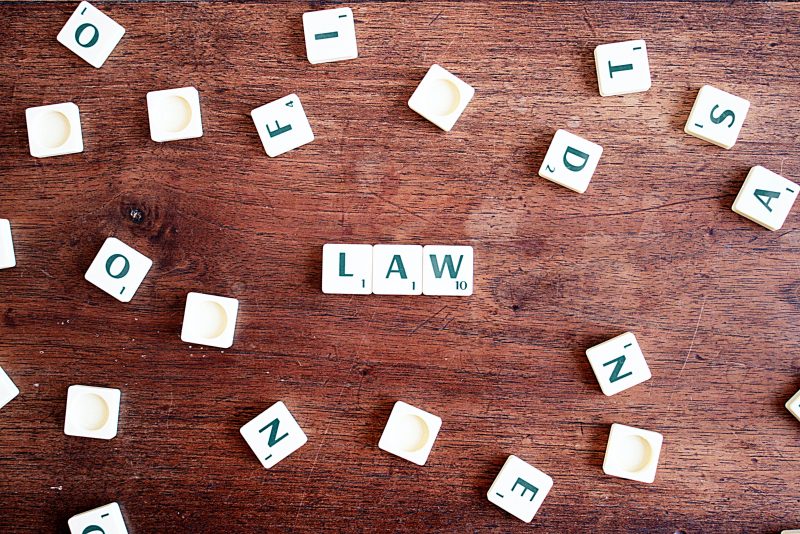


This level 5 qualification will prepare learners for the demands of a newsroom, teaching the skills needed to work as a professional journalist.
The NCTJ Diploma in Journalism is the qualification that editors look for when recruiting a trainee journalist.
You can study the diploma on an accredited course, via distance learning, or on an apprenticeship.
To gain the qualification, you must achieve a minimum of 82 credits, including the four mandatory modules (see the modules below).
These modules (totalling 47 credits) must be passed in order to achieve the qualification.

The essential journalism module is designed to equip you with the journalism skills and knowledge required to become a competent journalist working in today’s digital newsrooms across all media sectors. The programme of study teaches the vital core skills including multiplatform story-telling and how to be a successful journalist in the digital age.
Using social media for journalism, videojournalism, understanding website statistics and finding stories buried in data are all included.
This module is assessed by an online exam and completion of an e-portfolio of evidence.


The essential journalism e-portfolio is an assessment that demonstrates the journalistic skills and abilities you will gain when studying the diploma. It will demonstrate your ability to cover a range of content across different platforms. This can include on and off-diary stories, court, council, sport and features. Reviews and human-interest stories can also be included. You may relate your work to one specific topic, i.e. sport or fashion, if you intend to concentrate on a particular field of journalism.
You will have to submit online ten pieces of work which includes meeting three mandatory categories and it may be tailored towards news or magazine journalism.


All journalists must know the legal and regulatory boundaries of what they can and cannot report. This includes both the Editors’ Code of Practice and Ofcom Broadcasting Code.
The programme of study covers all the media law essentials as well as an introduction to court reporting. There are three different programmes of study and exams for England and Wales, Scotland, and Northern Ireland.
This module is assessed by an online exam which assesses your knowledge and practical application of media law and regulation.


Journalists are expected to work to high ethical standards. This module does not seek to engage in a debate around moral philosophy. It is intended to bring forward ethical issues faced by journalists in their day-to-day work and how they might be resolved. You can expect learning from this module to be integrated into much of your practical journalism work.
This module is assessed by an online, multiple-choice newspaper and magazine regulation test, or, if you are studying broadcast journalism, an online broadcast regulation exam.


The broadcast regulation module is compulsory for candidates studying broadcast journalism, TV journalism or radio journalism.
Assessment: candidates will sit a one-hour, online exam testing their ability to explain and apply the principles of broadcast regulation as set out in the Ofcom Broadcasting Code.
Candidates who study the broadcast regulation module will do so alongside essential journalism ethics and regulation, but they do not have to take the newspaper and magazine regulation test to earn the credits.
In addition to the mandatory modules, you must make up the remaining 35 credits with a selection of these elective modules.



This module builds on the introduction to the subject in the essential journalism module. It is about learning the knowledge and skills to operate as an audience-focused digital journalist in a multimedia newsroom including understanding and using website CMS systems and how to develop brands.
Many jobs in the field of digital and social media, like much of journalism, require close interaction with the public. You will need to have, or swiftly gain, sufficient confidence to handle such situations, including being in front of the camera.
This module is assessed by an online exam and a piece of digital journalism coursework.


This option builds on the introduction to the subject in the essential journalism module. It is about learning the knowledge and skills to operate as an audience-focused data journalist.
It will provide knowledge of how to find data, analyse that data in the most efficient way to find great stories, how to visualise the information found and go on to develop the data into content which will appeal to readers and viewers.
Assessment: candidates will sit a 75-minute online exam designed to test a candidate’s knowledge and skills in handling a large data set.
They will also submit a piece of data journalism coursework.


This module is designed to enable you to become a confident producer and user of video as a significant element of digital journalism. You will learn to exercise editorial judgment in relation to digital videojournalism, and make informed decisions about the use of a variety of digital platforms and devices.
You will learn the technical skills required to shoot, edit and publish video online. You will be aware of emerging platforms, technologies and trends, and you will learn the effectiveness of video on news websites, social media, on desktop and mobile devices.
This module is assessed by an online exam and a piece of videojournalism coursework.


All professional journalists should have a broad understanding of how government works at a local and national level, how they link together, where news stories come from and how to develop such stories. The programme of study covers the following key areas: controlling power; holding government to account; controlling money and key services. There are three different programmes of study and exams for England and Wales, Scotland, and Northern Ireland
This module is assessed by an online exam which assesses your knowledge and practical application of public affairs.


This module will equip you with sufficient understanding of both domestic and international politics and economics to be able to report on a wide range of issues relating to business and finance, and to do so with the ability to humanise complex subjects, making them accessible to a general audience.
It also covers the other main situations in which business and finance writers operate, including the analysis of financial reports, developing and operating a wide range of informative contacts for stories away from the traditional PR cycle. Business and finance features are also covered.
This module is assessed by a two-part, online exam.


This module builds on an introduction to court reporting in the essential media law and regulation (one of the mandatory modules) syllabus. It covers court reporting restrictions, regulatory and ethical considerations. It is an important option for those who wish to focus on hard news for any platform as courts remain an excellent source for stories.
This module is assessed by an online exam which assesses your knowledge and practical application of court reporting.


This module teaches you how to cover sports stories, building on your essential journalism knowledge and skills. The programme will teach you how to produce the different types of story required at each point in the sports news cycle; from a preview and a live report, to reaction and analysis. It also covers sports politics and public affairs, attending press conferences, conducting interviews and writing sports features.
This module is assessed by a two-part, online exam which includes testing your live match reporting skills.


This module builds on the introduction to editing in the essential journalism syllabus. Journalists are publishing stories without the luxury of copy being checked, and are expected to ‘get it right first time’. Editing skills are valuable and transferable – the module would also suit working journalists who wish to make the move to sub-editing, or equally for anyone wishing to get into journalism from another industry.
This module is assessed by an on-screen, sub-editing exam.


Teeline shorthand is the most popular shorthand system in the UK and uses the same principle as all other shorthand methods by assigning a unique outline to each word. This helps journalists take down accurate notes quickly. Teaching yourself shorthand requires a lot of dedication and perseverance. It’s like learning another language and is a steep learning curve requiring daily practice. The industry standard for shorthand is 100 words per minute (wpm).
This module is assessed by exams delivered from 60wpm to 120wpm.


This double elective option will provide you with the opportunity to learn and practise feature writing skills on multiple platforms for the magazine industry. Key to the proficiency of a magazine journalist is the ability to generate fresh, original ideas that are relevant to the targeted audience and in a variety of sectors including consumer, B2B, specialist, customer and in-house supplements.
In the assessment you will produce a real-world feature through a combination of pre-assessment coursework and a timed assessment called the ‘magazine day’ which will be conducted under newsroom conditions and will be published online.


This double module will enable you to understand the objectives, strategies and tactics employed by PR staff with whom you will come into contact as a journalist. It can also prepare you to work at a junior level in public relations. The programme of study will include: how to produce a campaign strategy, including key messages and tactics; commonly used PR terms; how to create accurate news releases; understanding the scope of the PR function including legal and ethical issues; and how to use social media to deliver PR objectives.
This module is assessed by a two-part, online exam.


This single module will enable trainee journalists to understand some of the methods employed by PR staff with whom they will come into contact. It will also help to prepare them to work at a junior level in public relations and use professional techniques and tools to produce a basic PR campaign; and create accurate and effective news releases suitable for publication in a variety of media outlets.
Assessment: a two-hour online exam: candidates are required to produce a basic campaign strategy, including key messages and detailed tactics and produce a 300-word news release targeted at the local media.


This double module covers the additional skills required to operate effectively as a broadcast journalist in television and radio. Candidates will learn how to research, write and produce high-quality reports for radio and television. It will also instil a degree of familiarity with the technology, techniques, language and regulation of broadcast journalism and teach practical skills. It will reflect the best current practice in broadcast newsrooms in the UK.
Assessment: candidates are required to submit one piece of radio coursework, take a practical, timed radio news exam and sit a TV newsday assessment.
* Note: if you choose to study broadcast journalism you MUST also study the broadcast regulation module.


The photography specialist option is designed to equip a trainee journalist with the photography skills required to produce images of publishable quality that meet industry standards.
Assessment: e-portfolio of images including a 150-200 word news story and evidence of any ethical and legal considerations when taking or publishing the images.
NB: Candidates opting to take this unit are also encouraged to take the videojournalism for digital platforms option. Video skills are vital to be able to create distinctive videojournalism which is accurate, clear and communicative and compliments the skills gained in stills photography in this unit.


This single module will equip candidates with the essential skills to work as journalists in radio newsrooms. It will be studied alongside the core journalism skills of the diploma. Candidates will learn how to research, write and produce high-quality reports for radio.
Note: if you choose to study radio journalism you MUST also study the broadcast regulation module.
Assessment: candidates will sit a radio news exam testing their ability to produce and record a two-minute news bulletin from material provided for a given market audience.
They will also produce as coursework a radio news package or a podcast.


This single module will equip candidates with the essential skills to work as journalists in TV newsrooms. It will be studied alongside the core journalism skills of the diploma. Candidates will learn how to research, write and produce high-quality reports for TV.
Note: if you choose to study TV journalism you MUST also study the broadcast regulation module.
Assessment: candidates are assessed on a practical TV newsday assessment. They will film their own news story, including interviews, prior to the assessment day. On the day, they will produce a TV package and reversion their footage for two different platforms.
To pass, you must achieve A-E grades in all modules taken (achieving a minimum 82 credits) and a minimum 60wpm shorthand if taken.
To gain the industry ‘gold standard’ diploma you must achieve A-C grades in all modules taken (achieving a minimum 82 credits) and 100wpm shorthand if taken.
Funding is available for those in need of financial assistance through the Journalism Diversity Fund for NCTJ-accredited courses (excluding undergraduate courses).
To find out which elective modules each accredited course has on offer (e.g. broadcast journalism, sports journalism), click here.
The NCTJ publishes an annual examiners’ report for the Diploma in Journalism.
The chief examiners provide feedback and updates on each module, the report also provides details of how many candidates sat each exam, pass rates and awards winners.
Examiners’ reports are available below:
On 1 September 2020, the NCTJ level 5 Diploma in Journalism was introduced. This qualification will replace the Level 3 Diploma in Journalism after a transition period. Click here to read the transition arrangements.
There are a number of ways to study for the NCTJ diploma, so you're sure to find an option to suit your needs





